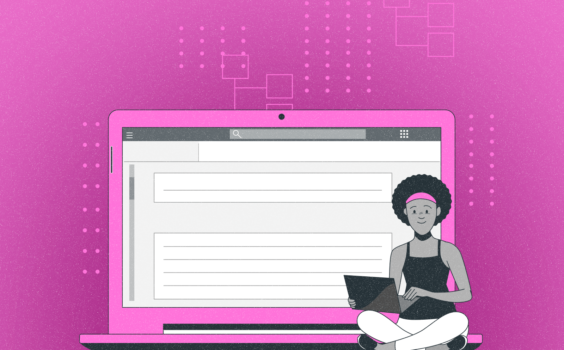

Many companies are very skeptical about remote work – most do not understand how to control employees at a distance and at the same time maintain a productive working rhythm.
In 2009, IBM devised a policy to allow 40 percent of its employees worldwide to work remotely. But in 2017, as the company’s revenue start slumping, the management pulled back its decades-old remote work policy. IBM said that the marginalized feel makes remote employees less loyal. As a result, their innovation, creativity, and productivity suffer.
Besides IBM, many other companies, including AT&T, Aetna, Bank of America, and Best Buy, canceled their work-from-home policies.
But today, it is the question of saving our lives. We have no option but allow employees to work from home or close the business. Already, more than 100,000 businesses alone in the U.S. only have closed permanently.
That’s when employee tracking software programs come into the picture.

The challenge of tracking tasks and productivity
Tracking the progress and performance of remote workers daily is a daunting task. Though you may say “project management tools” in response, these only show when a team member starts and finishes their errands.
But, these tools do not provide live feedback. They do not tell how productive your team is. Do they not tell if they are utilizing every minute of their working hours for the company’s profitability?
To ensure that your employees are productive and to guarantee expected revenue to your company, you have to track your employees.
Some tools that are popular in the remote working trend are:
Zoom/Skype Meetings
Online conference tools like Zoom and Skype have made remote works easily. But, they have their own set of pros and cons.
Pros
- Better ability for communication;
- Help in sharing information easily;
- Save time and money to businesses;
Cons
- Reduces human contact;
- Takes up useful work time for all team members;
- Requires stable internet connection and equipment availability;
Task Management Systems
It is difficult to imagine a business working remotely and not using project and task management systems, but even using such a system there are no guarantees of high employees productivity.
Pros
- Customizable;
- Visual progress tracking;
- A lot of different solutions for different companies;
Cons
- It takes time to integrate business processes and configure them;
- One tool does not fit the need of employees at different levels;
- Lack of integration support;
- No time tracking facilitated with all tools;
Micromanagement
In micromanagement style, a manager closely observes, controls, and reminds the work of employees. Micromanagement is considered the most inefficient way to manage projects and teams, but it is still common among managers. Of course, this method has its advantages, but from the point of view of remote work, this method is not the most effective.
Pros:
- Micromanagers care when there is a problem;
- Employees can experiment, make mistakes, and be creative;
- Reassurance that the work will be done;
Cons:
- It takes a lot of time for managers, and the quality of tactical and strategic decisions is falling;
- Lack of freedom in the workplace for employees;
- May increased staff turnover;
- Managers anxiety about relinquishing control can hurt the company’s success;

The thing to know when monitoring your employees
Did you know 73% of employees feel that tracking their work would damage trust between them and their employers? Also, 43% of employees think that monitoring their work is a violation of their privacy.
So, when using such as technology, you need intent and objective.
Heavily regulated industries have to monitor workers for legal and compliance reasons. However, other organizations should use employee monitoring tools to understand the behaviors and challenges of remote workers. It should not be intended to keep an eye on every mouse click.
And here, you need a GREAT time tracking software for employees!
In the following industries, monitoring the productivity of remote employees directly and critically affects revenue:
- Finance
- Healthcare
- Information Technology
- Marketing
- Designers
- Architects
- Web Development
- Consultants
- Lawyers
- Accounting
- Media
- Logistics
Ensure that you remain transparent, telling your employees that they are being monitored and this action’s purpose.
Tips to Effectively Manage Your Remote Employees
Thanks to the new advanced technology, managing your remote team has become much easier. In order to overcome any potential associated with this trend, you can follow these useful pieces of advice and tips:
- Set expectations early: Stay accessible as much as possible. Provide clarity on milestones and priorities related to the project. Convey each member’s availability and performance goals and make sure they meet these goals as expected.
- Emphasize communication: Effective communication keeps employees apprised of available resources, deadlines, challenges, expectations, etc. So, choose the right communication tool that easily fits your company’s culture.
- Use employees monitoring software: Employee tracking software makes your team members accountable for their everyday output. This further keeps them motivated to stay productive. With a proper record of time spent on the project, your clients know what they are billed for. Employers have peace of mind knowing that their remote workers are committed to their work. In addition, a good track work hours app saves time on task management as the time tracking does this for you.
- Organize one-to-one meetings frequently: One-to-one conversations are an effective step to manage your team. It keeps everyone engaged and up-to-date with everything related to the project and the company. So, do not postponed or cancel these events. Hold one-to-one meets on a bi-weekly or monthly basis. Encourage employees to raise their concerns, shared ideas, and ask questions they may have.
Wrapping Up
Productive employees are an asset to your business. Besides using an employee tracking software program, you have to follow other practices.
Make them feel valued! Appreciate them for supporting you through their hard work! Offer incentives as and when you feel they really deserve.


